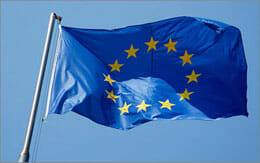European Domains after Brexit
By Clare Grimley, LLB, Research Manager
After three extensions of time the UK has finally left the EU and entered the transition period.
Whilst the .eu extension is the most obviously affected ccTLD, it should be borne in mind that other European ccTLD extensions have eligibility requirements too, some of which may not be met by UK owners or registrants using a UK address once the transition period ends on 31 December 2020.
Many global organisations rely upon a UK subsidiary or other UK presence to meet the eligibility requirements of European ccTLDs but will now have to rethink this strategy where a UK presence is no longer compliant.
This will not only affect UK based entities and registrants, but also those who are based outside of Europe using a UK address (perhaps a subsidiary company registered in the UK).
We have put together an overview of those European ccTLDs where Brexit has the potential to directly impact the eligibility of UK owners or UK address users to hold such domains.
European Union – .eu, .ею .ευ
Domain owners need to be Union citizens (regardless of address), resident of a Member State, or an organisation established in the Union, Iceland, Liechtenstein or Norway. Domain registrants who are unable to meet this criterion will have their respective domains deleted on a timeline to be decided by EURid. Check their website here for updates.
Bulgaria – .bg .бг
Domain owners need to be individuals or legal entities with commercial registration in the Republic of Bulgaria or an EU Member State. The Registry have advised that existing domains registered to UK owners will not be affected however new domains will have to be registered via an EU-registered third party.
Croatia – .hr
Domain owners need to be individuals or legal entities registered in the Republic of Croatia, foreign entities who have a registered subsidiary in the Republic of Croatia or a legal entity established in the EU. The Registry have decided that UK owners and registrants using a UK address can continue to hold and register .hr domains.
France – .fr .pm .re, .tf, .wf .yt
Domain owners must be located within the territory of one of the Member States of the EU, or Norway, Switzerland, Iceland or Liechtenstein. The Registry are yet to make a decision on what will happen for UK owners and registrants using a UK address.
Hungary – .hu
Domain owners need to be individuals or legal entities in Hungary, the EU, a country of the Council of Europe, the EEA, EFTA or a country neighbouring Hungary. Alternatively, they must be the owner of a trade mark registered in, or granted protection rights, in Hungary. The UK has not left the Council of Europe at present and so .hu domains are unaffected by Brexit unless this position changes.
Italy – .it, .co.it
Domain owners need to be individuals with citizenship or residence in, or entities with, a registered office in the EEA, the Vatican, the Republic of San Marino, or Switzerland. The Registry have said that UK owners and registrants using a UK address can continue to hold domains registered before the end of the transition period, but that they are awaiting the final outcome of negotiations between the UK and EU before setting their policy for registrations after 31 December 2020.
Whilst not a direct requirement for the domain owner, the rules for .cz, .de and .sk domains all require an address for service in the EU/EEA to be provided if so requested by the Registry.
If you have domains which are affected, there are steps you can take such as transferring your affected domains to an EU-based entity if you have one, moving your website to an alternative extension such as a ccTLD for which you meet the eligibility requirements, a legacy gTLD or a new gTLD, or other relevant alternatives depending on your circumstances.
If you have any concern about domains in your portfolio get in touch for help with a plan of action.

Join our webinar with an update from ICANN67
Tuesday, March 24th 2020 5PM – 5:45PM GMT
Gain an understanding of the latest domain name policy decisions.